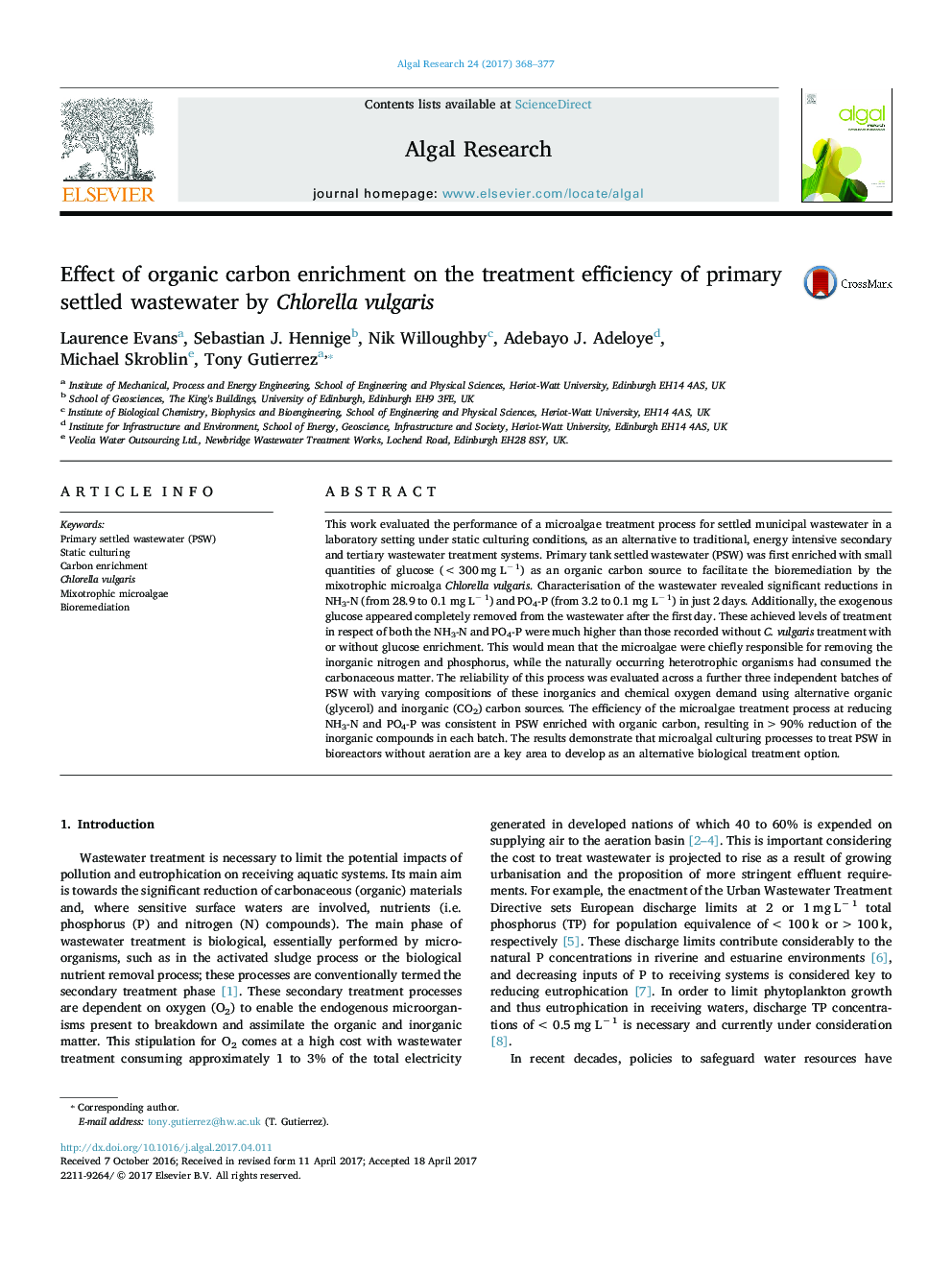| Article ID | Journal | Published Year | Pages | File Type |
|---|---|---|---|---|
| 5478447 | Algal Research | 2017 | 10 Pages |
Abstract
This work evaluated the performance of a microalgae treatment process for settled municipal wastewater in a laboratory setting under static culturing conditions, as an alternative to traditional, energy intensive secondary and tertiary wastewater treatment systems. Primary tank settled wastewater (PSW) was first enriched with small quantities of glucose (< 300 mg Lâ 1) as an organic carbon source to facilitate the bioremediation by the mixotrophic microalga Chlorella vulgaris. Characterisation of the wastewater revealed significant reductions in NH3-N (from 28.9 to 0.1 mg Lâ 1) and PO4-P (from 3.2 to 0.1 mg Lâ 1) in just 2 days. Additionally, the exogenous glucose appeared completely removed from the wastewater after the first day. These achieved levels of treatment in respect of both the NH3-N and PO4-P were much higher than those recorded without C. vulgaris treatment with or without glucose enrichment. This would mean that the microalgae were chiefly responsible for removing the inorganic nitrogen and phosphorus, while the naturally occurring heterotrophic organisms had consumed the carbonaceous matter. The reliability of this process was evaluated across a further three independent batches of PSW with varying compositions of these inorganics and chemical oxygen demand using alternative organic (glycerol) and inorganic (CO2) carbon sources. The efficiency of the microalgae treatment process at reducing NH3-N and PO4-P was consistent in PSW enriched with organic carbon, resulting in > 90% reduction of the inorganic compounds in each batch. The results demonstrate that microalgal culturing processes to treat PSW in bioreactors without aeration are a key area to develop as an alternative biological treatment option.
Related Topics
Physical Sciences and Engineering
Energy
Renewable Energy, Sustainability and the Environment
Authors
Laurence Evans, Sebastian J. Hennige, Nik Willoughby, Adebayo J. Adeloye, Michael Skroblin, Tony Gutierrez,
